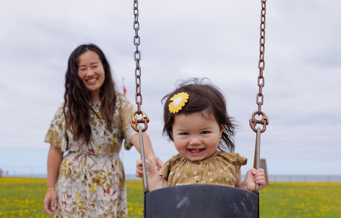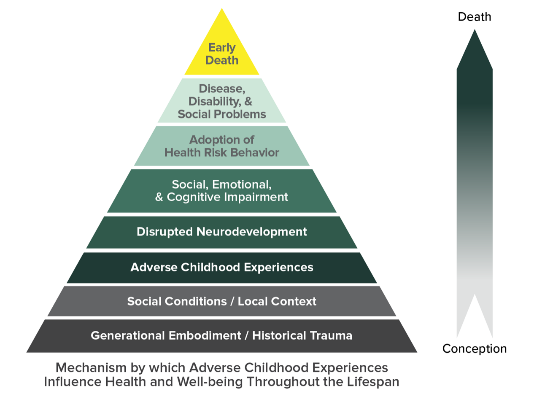Healthy People
Mental and physical health are so closely related that it is difficult to talk about one without the other – both are necessary for overall well-being.
Mental health refers to our psychological well-being; it is sometimes described as being on a continuum that ranges from wellness to un-wellness.
Where we are on this continuum – our mental wellness – varies throughout our life. This is because mental health is affected by many things: genetics, physical health, past life experiences, and current living circumstances.
Mental wellness is not about always being happy. It is about feeling generally well and being able to function in your daily life – in good and bad times – including coping with normal life stress, working productively, and contributing to your community.
Measuring Positive Mental Health in Canada (infographic)
Mental wellness is affected by many things: diet, activity, sleep habits, relationships, stress, etc. To stay mentally well, it is important to follow a healthy routine that nurtures our bodies, our minds, and our connections with others.
- Early Child Development
-
Early childhood (0-3 years old) is a time of rapid development in body systems that are critical to lifelong health. These systems start developing even before birth. From the earliest moments of life, experiences and environments powerfully influence a child's development. Social, cultural, and economic circumstances (i.e., social determinants of health) shape children's early experiences and environments, when the roots of lifelong health and development are being established.
Research points to the importance of early experiences and of families and communities in promoting children's health. A responsive and safe relationship between a child and caregiver is foundational for a child's physical, social and emotional health throughout the lifespan. Likewise, social, cultural, and economic determinants play a significant role in promoting health.
- Adverse Childhood Experiences
-
Potentially traumatic events that occur during early childhood, known as adverse childhood experiences, or ACEs, can have life-long impacts. These events can include violence, abuse, or growing up in a family with mental health or substance use problems.
Experiencing severe or chronically stressful events in one's childhood may lead to significant future health problems. If not addressed early, the toxic stress from these experiences can add up, affecting body and brain development and leading to lifelong health problems like chronic disease, cancer, and mental illness.
Many people do not realize that exposure to ACEs is associated with an increased risk for health problems across the lifespan.
- Social Connection and Belonging
-
An important way that individuals can maintain their mental wellbeing is in community with others. It is well-established that social connectedness – feeling like you belong to a group of people – protects and promotes mental health. Weaker community belonging is associated with poorer general and mental health ratings.
Compared to Canadians overall, there has been a consistently higher percentage of PEI residents who reported having a strong sense of community belonging. In 2017/18, 73.9% of PEI residents reported a strong sense of community belonging compared to 69.4% of Canadians (PEI CPHO Report, 2021).
Family, friend, and community supports are also strongly related to better health. These social networks offer additional resources to people for solving problems and dealing with stressful life circumstances. The risk of health problems is reduced when people have caring and respectful relationships with others. In addition to a sense of connection, when community members have access to safe, affordable housing and good jobs, they experience less stress and anxiety. In contrast, exposure to community-level stressors like violence or frequent displacement typically undermine a sense of individual and community wellbeing.
- Mental Health Literacy
-
Mental health literacy means to have more knowledge and awareness of mental health and mental illness. This enhanced understanding promotes prevention, help-seeking, and self-management of mental health issues.
In recent years, there has been a growing focus on mental health literacy in PEI schools. Mental health literacy helps to build individual and collective resiliency and capacity for overall well-being. It empowers people with the knowledge and skills needed to take care of themselves, to help each other, and to build better communities.
- Resilience
-
Mental health literacy means to have more knowledge and awareness of mental health and mental illness. This enhanced understanding promotes prevention, help-seeking, and self-management of mental health issues.
In recent years, there has been a growing focus on mental health literacy in PEI schools. Mental health literacy helps to build individual and collective resiliency and capacity for overall well-being. It empowers people with the knowledge and skills needed to take care of themselves, to help each other, and to build better communities.
- Resources: Mental Health Supports and Services
-
211 PEI
211 is a free and confidential service that connects Islanders with social, government, and non-urgent health services quickly and easily. Call 2-1-1 or visit https://pe.211.ca for 24/7 support in over 100 languages.
Bridge the gApp
Bridge the gApp is an online resource designed to support mental wellness for youth and adults. To learn more, visit https://pei.bridgethegapp.ca
Health PEI Mental Health and Addictions Access Line
Health PEI offers mental health services for adults, youth, and those wanting to support family members. To speak to a trained mental health professional, call the Mental Health and Addictions Phone Line at 1-833-553-6983. For more information on local mental health supports and services, visit the Mental Health Support and Services website.
Early childhood (0-3 years old) is a time of rapid development in body systems that are critical to lifelong health. These systems start developing even before birth. From the earliest moments of life, experiences and environments powerfully influence a child's development.Social, cultural, and economic circumstances (i.e., social determinants of health) shape children's early experiences and environments, when the roots of lifelong health and development are being established.

Research points to the importance of early experiences and of families and communities in promoting children's health. A responsive and safe relationship between a child and caregiver is foundational for a child's physical, social and emotional health throughout the lifespan. Likewise, social, cultural, and economic determinants play a significant role in promoting health.
How Early Childhood Experiences Affect Lifelong Health and Learning (Centre on the Developing Child, Harvard University, YouTube, 5:10 minutes)
Potentially traumatic events that occur during early childhood, known as adverse childhood experiences, or ACEs, can have life-long impacts. These events can include violence, abuse, or growing up in a family with mental health or substance use problems.
Experiencing severe or chronically stressful events in one's childhood may lead to significant future health problems. If not addressed early, the toxic stress from these experiences can add up, affecting body and brain development and leading to lifelong health problems like chronic disease, cancer, and mental illness.
Many people do not realize that exposure to ACEs is associated with an increased risk for health problems across the lifespan.
An important way that individuals can maintain their mental wellbeing is in community with others. It is well-established that social connectedness – feeling like you belong to a group of people – protects and promotes mental health. Weaker community belonging is associated with poorer general and mental health ratings.
Compared to Canadians overall, there has been a consistently higher percentage of PEI residents who reported having a strong sense of community belonging. In 2017/18, 73.9% of PEI residents reported a strong sense of community belonging compared to 69.4% of Canadians (PEI CPHO Report, 2021).

Family, friend, and community supports are also strongly related to better health. These social networks offer additional resources to people for solving problems and dealing with stressful life circumstances. The risk of health problems is reduced when people have caring and respectful relationships with others. In addition to a sense of connection, when community members have access to safe, affordable housing and good jobs, they experience less stress and anxiety.In contrast, exposure to community-level stressors like violence or frequent displacement typically undermine a sense of individual and community wellbeing.




